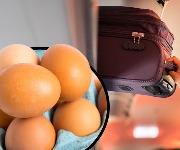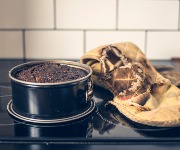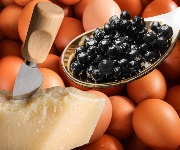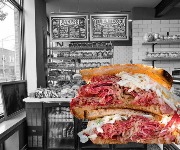Is a cheesemaking kit the perfect Christmas gift?
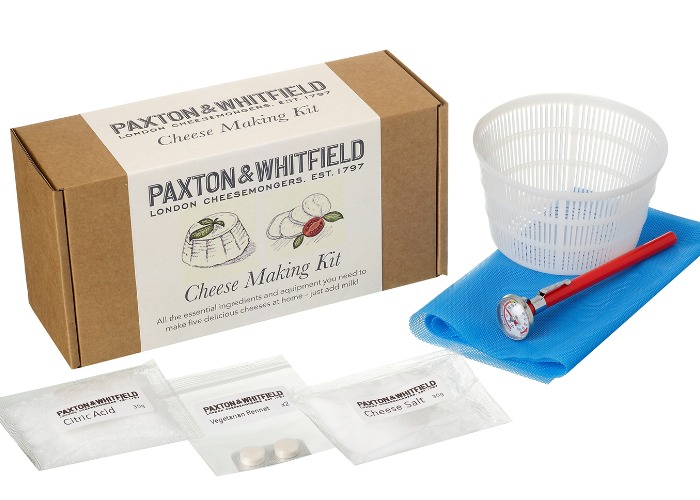
Should cheesemaking be left to the experts? We tested Paxton and Whitfield’s new cheesemaking kit to find out.
For many of us, Christmas revolves around one thing and one thing only. No, it’s not presents, turkey or mulled wine: it’s cheese.
December brings an array of delicious cheeses to the shelves, from traditional blue-flecked stiltons and crumbly cheddars to boxed camemberts and slices of raclette ready to be sizzled under the grill.
This year, Britain's most esteemed cheesemonger has decided it’s time we added to the selection – by having a go at making cheese ourselves.
Paxton and Whitfield’s new cheesemaking kit promises to be the perfect gift for turophiles (that’s a cheese enthusiast to the rest of us). It provides the basic ingredients to make fresh ricotta, mozzarella, burrata, mascarpone and a soft goat’s cheese.
What’s the appeal?
Cheesemaking all comes down to the same set of basic ingredients, but has a reputation for being complicated and long-winded. Paxton’s reckon this kit will demystify the process, enabling people to make cheese in their own kitchens.
Whether or not your results come up to cheese-counter standard, spending a few hours messing around with curds and whey is an appealing way to pass a grey winter afternoon.
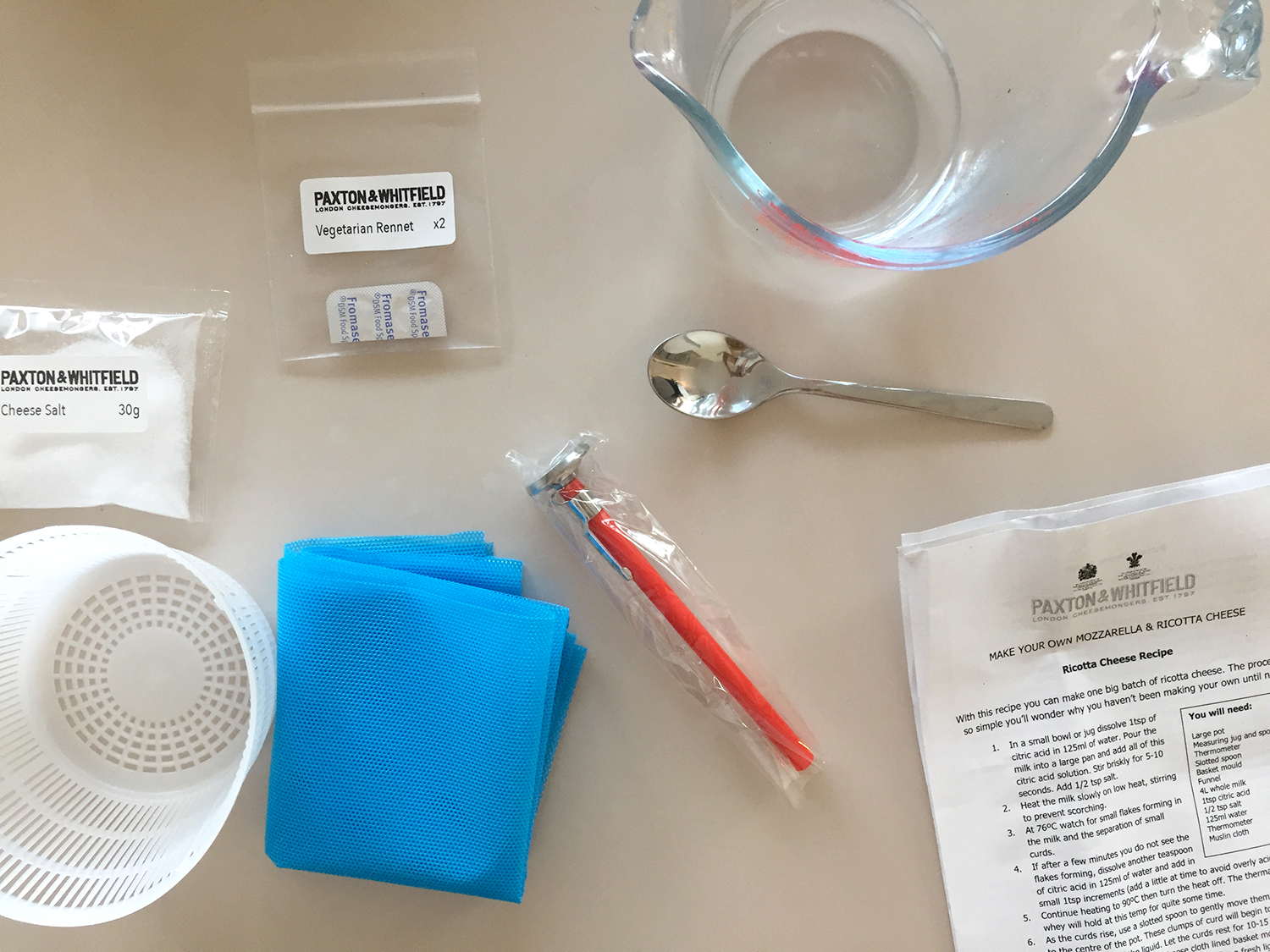 Eleanor Aldridge
Eleanor Aldridge
What does the kit include?
The kit contains a thermometer, citric acid, cheese salt, a cheese cloth, rennet tablets, a basket mould and recipes.
You’ll need to add milk, and possibly cream, depending on what you decide to make.
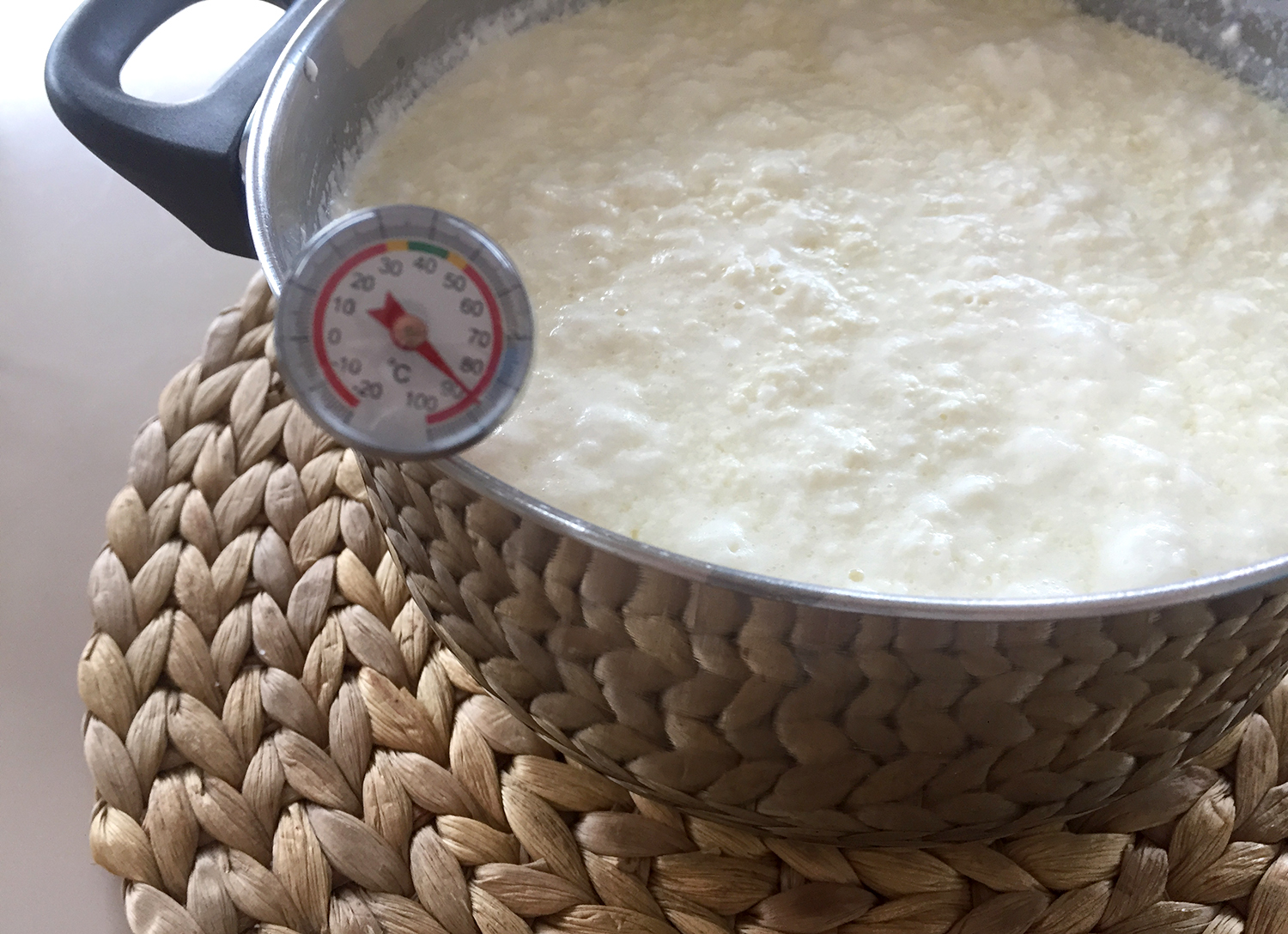
Eleanor Aldridge
What did we try?
We settled on an easy option (ricotta) and a challenge (burrata).
The ricotta was a storming success. The recipe is simple: add a citric acid solution to milk, and heat until curds form at 76ºC. After the pan has rested off the heat for ten minutes, ladle the curds into a cheese-cloth-lined basket mould to drain for a couple of hours.
The finished ricotta was a little dry, and would have benefited from longer draining to make it creamier, but otherwise was pretty close to shop-bought standard.
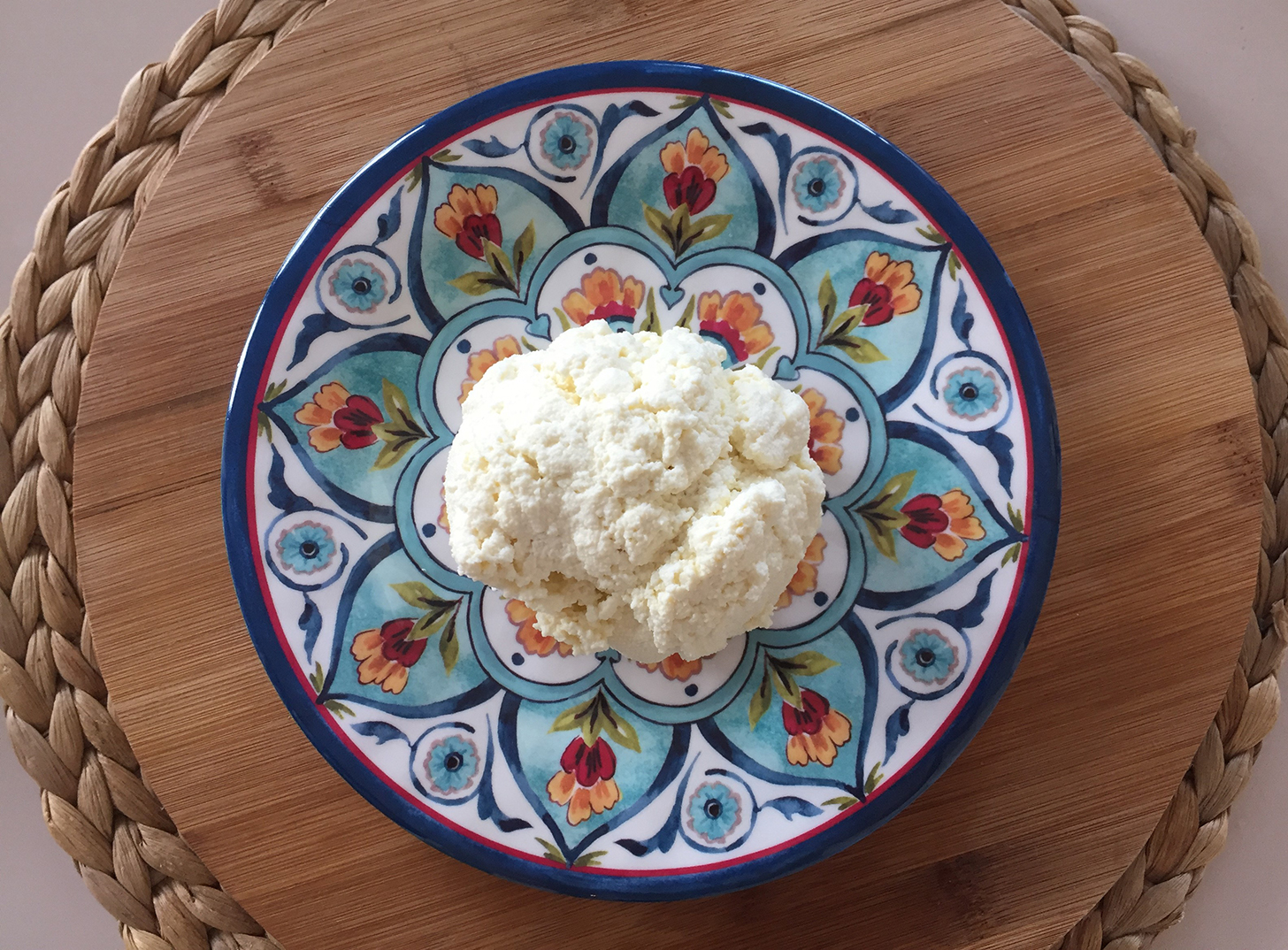 Eleanor Aldridge
Eleanor Aldridge
Burrata – a tight ball of mozzarella enriched with cream – is made by adding both rennet and citric acid to milk, and also requires a complex process of microwaving and stretching the curds. It’s probably best left to the experts.
Once the rennet and the citric acid have been added and the pan has rested, Paxton’s instructions advise that the milk should have set and “feel like soft silken tofu”. We created a strange sort of cottage cheese that never coalesced back to solid form.
If you're more successful, the next step is to separate a small portion of curds to mix with double cream. The remaining curds are then heated, stretched and shaped into discs, onto which the creamy filling is placed before the burrata's final ball shape is created.
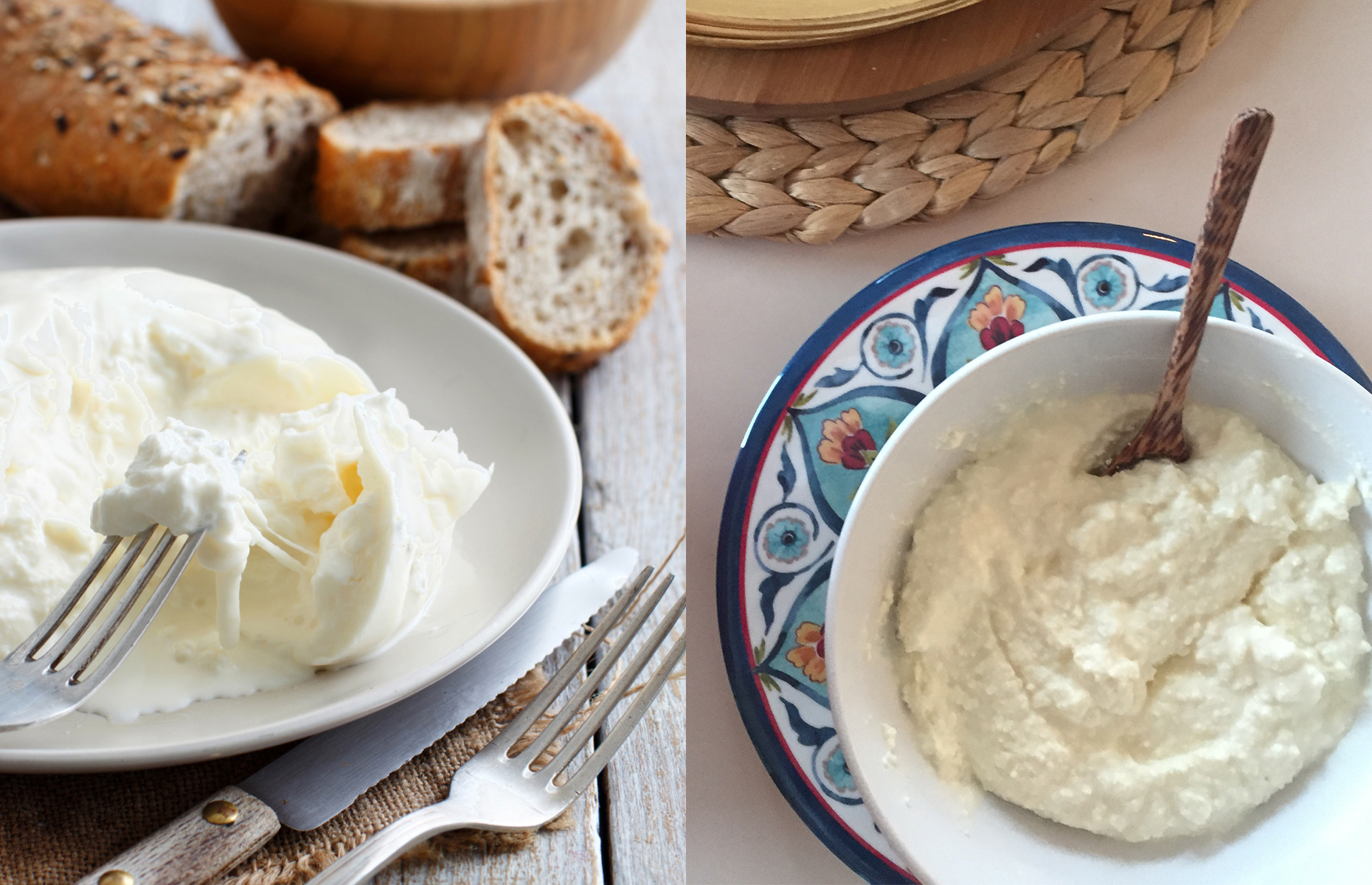 Expectation vs reality: Karissaa/Shutterstock & Eleanor Aldridge
Expectation vs reality: Karissaa/Shutterstock & Eleanor Aldridge
What’s great about the kit?
Burrata battles aside, this kit would still make an excellent gift for cheese fiends – particularly anyone with a competitive streak who wants to better our efforts.
At £25.00, it's also one of the more affordable kits on the market. You get plenty of ingredients, and the clip-on thermometer will come in handy for other recipes.
What could be improved?
The recipes let the side down. A simple list of five to ten steps isn't enough detail for an amateur cheesemaker, and if things get whey off course, there are no suggestions for how to get them back on track.
We also found their suggested amounts too large: 4 litres of milk is more than an average saucepan will hold, so we divided the recipes in half. The instructions noted that times and temperatures would need to be adjusted if you change the quantities, but didn't give further details.
Christmas corker or Christmas catastrophe?
Curd your enthusiasm: while this kit is a lot of fun, Paxton’s won’t be doing themselves out of business anytime soon
A fun gift, but one for assured home cooks who don't mind a bit of guesswork – and a bit of mess.
Most Recent
Comments
Be the first to comment
Do you want to comment on this article? You need to be signed in for this feature
